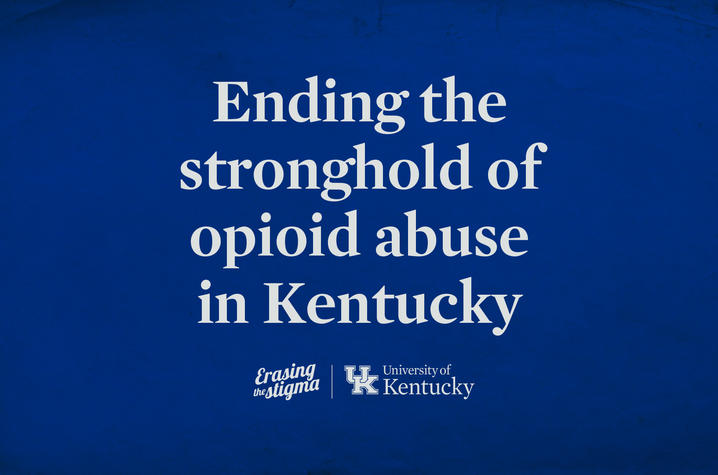Confronting the Opioid Epidemic

Tuesday, October 31, 2017
Few places have been hit harder by the opioid epidemic than Kentucky.
Rates of HIV, Hepatitis C, overdose deaths, and other afflictions have risen significantly due to the scourge of opioid drug abuse and addiction.
What is ravaging much of America is destroying far too many Kentucky communities.
That’s the reason that, on Friday, the acting Health and Human Services Secretary, Eric Hargan, held a round-table discussion with UK HealthCare practitioners and patients at UK HealthCare’s Polk-Dalton Clinic.
UK is at the forefront of this issue – as clinicians treating the afflicted, as researchers seeking answers on how to stop the addiction from spreading. As the Commonwealth’s flagship, land-grant institution, the University of Kentucky is committed to meeting the challenge of opioids head on – in labs, in hospitals and clinics, and directly in communities across the state.
With highly regarded researchers and clinical programs that have drawn national praise, UK and UK HealthCare are addressing opioid abuse in a multi-faceted fashion – helping those seeking recovery, and protecting those most vulnerable, such as children, caught in addiction’s deadly path.
We are making a difference.
But there is much more to do.
As the University for Kentucky, we are committed to the work ahead.
Below are a few examples, among many, of ways we are, as a community, fighting this devastating epidemic.
Clinical Changes (Prevention)
Our physicians understand they play a key role in combating the opioid epidemic. That's why our trauma unit has worked to reduce the number of prescriptions for opioids. In a state with the third-highest death rates from drug overdose, keeping people from ever becoming addicted is integral to turning the tide on the epidemic. By changing prescribing habits and introducing new guidelines, the number of opioids administered to patients has been cut in half.
Learn how we're changing prescribing habits to prevent opioid abuse.
PATHways (Treatment)
At the Polk-Dalton Clinic at UK HealthCare, pregnancy is treated as an opportunity for women to find support in their efforts to enter recovery from opioid use disorder. With access to an obstetrician, psychiatrist, neonatologist, and peer support, patients are given a solid platform on which to rebuild their lives. The Perinatal Assessment and Treatment Home (PATHways) clinic provides a holistic approach to long term recovery.
Learn about PATHways and our approach to helping pregnant women.
Implantable MAT (Treatment)
Our physicians are working to develop better ways to deliver the care patients with opioid use disorder need. Medication assisted treatment, specifically buprenorphine, has proven successful in treating opioid use disorder, and our team has developed a new and safer way to get the medicine into the patient's body. With an implantable medication, risks of overdose, misuse, and diversion associated with the current pill formulations are eliminated.
See how we're changing the game when it comes to medication assisted treatment.
At the University of Kentucky, we believe that brainpower, harnessed in common cause and against insidious disease, can create real, lasting change. Our commitment to combatting the opioid epidemic is another way we serve as the Commonwealth’s indispensable institution—as the University for Kentucky. The nation’s health leaders are coming to Kentucky because the problems and challenges here are real and large. But they are also coming here because UK – and the men and women who provide healing and the potential for life-saving discovery – is here, too.
We are finding a way to address those issues that challenge our state – and our country – in the most profound of ways.
We know solving local issues can create global solutions.
It’s another reason why we are the University for Kentucky.




